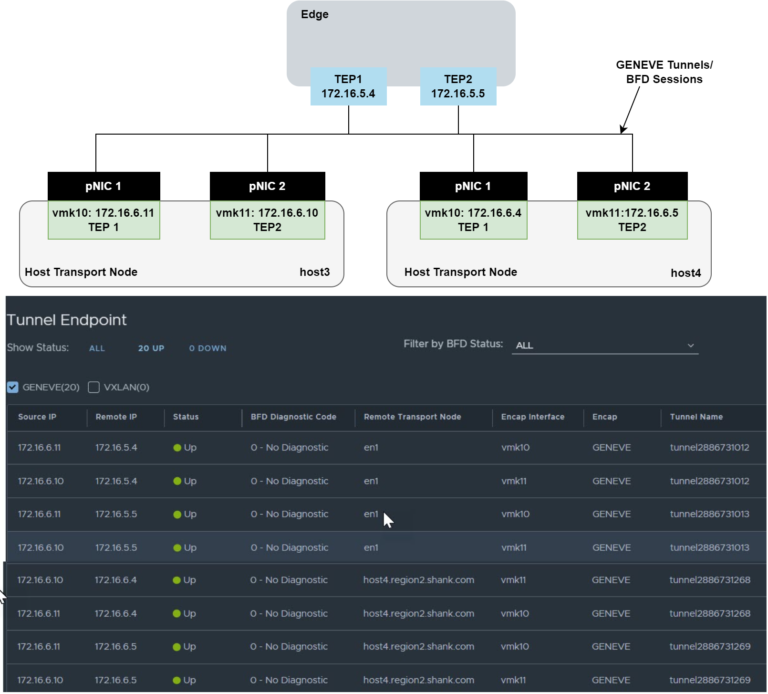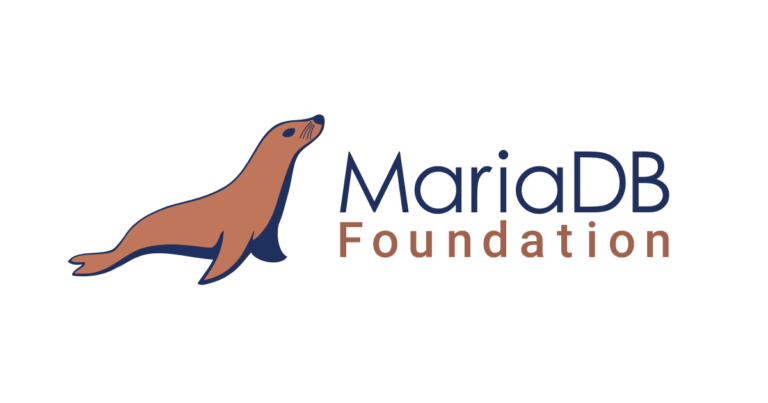Looking to enhance your cybersecurity skills and protect your systems from potential threats?
Consider Kali Linux, the premier Linux distribution for security professionals.
Kali Linux offers advanced penetration testing tools and industry-standard capabilities to safeguard your systems.
From desktop customization options to various deployment choices, Kali Linux caters to your specific security needs.
Stay updated with the latest news and updates to maximize the benefits of Kali Linux.
Key Takeaways:
- Kali Linux is the go-to distribution for security professionals due to its advanced penetration testing tools and comprehensive toolset.
- It is widely used and recognized in the industry, making it a valuable asset for security professionals looking to stay ahead of the game.
- Kali Linux offers a variety of deployment options and customizable desktop environments, making it a versatile and user-friendly platform for security professionals.
Introduction to Kali Linux
Kali Linux, a powerful and versatile platform for cybersecurity professionals and enthusiasts, offers a comprehensive suite of tools and resources for penetration testing and ethical hacking.
Its significance in the cybersecurity landscape lies in its specialized focus on security testing, making it a go-to choice for professionals looking to assess the vulnerabilities in their systems. With its community-driven development, Kali Linux ensures that it stays updated with the latest security tools and techniques, providing users with cutting-edge solutions.
The array of tools available on Kali Linux caters to various aspects of security testing, ranging from network mapping and vulnerability analysis to digital forensics and reverse engineering. The seamless integration with platforms like GitLab enhances collaboration among security teams, streamlining the testing and documentation processes.
Moreover, Kali Linux extends its support to different architectures, including the ARM architecture, making it versatile and adaptable to various environments. The platform’s emphasis on diversity, equity, and inclusion (DEI) initiatives strengthens its commitment to fostering an inclusive cybersecurity community for all individuals.
About Kali Linux
Kali Linux, developed by Offensive Security, is an open-source platform known for its robust security features, customizable environment, and extensive support for wireless testing.
Kali Linux, originally derived from the Knoppix Live CD project, morphed into a full-fledged distribution focused on digital forensics and penetration testing. Its roots trace back to BackTrack Linux, merging its best features into what’s now known as Kali. The extensive selection of tools, coupled with its constant updates and patches, makes it a go-to choice for cybersecurity professionals worldwide. Individuals, security enthusiasts, and white-hat hackers alike benefit from the collaborative efforts fueling Kali’s evolution.
The vibrant community backing Kali Linux plays a fundamental role in its growth. The community actively contributes to the distribution’s development, updates, and repository of tools. The inclusive nature of this community fosters knowledge-sharing, troubleshooting, and mutual support, ensuring that Kali remains at the forefront of security testing environments.
One of the standout features of Kali Linux is its adaptability to diverse environments, including the Raspberry Pi. By supporting this versatile platform, Kali becomes a portable powerhouse for security testing, leveraging the compact yet powerful Raspberry Pi hardware. This compatibility extends the utility of Kali to a broader audience, enabling enthusiasts and professionals to perform security assessments more conveniently.
Kali Linux Features
Kali Linux boasts a wide range of features including advanced modules for penetration testing, network monitoring tools like Wireshark and Nmap, and robust capabilities for ethical hacking.
One of the standout features of Kali Linux is its extensive collection of penetration testing modules, allowing users to simulate and identify various security vulnerabilities within their systems. With tools like Wireshark and Nmap at its core, Kali Linux enables deep packet inspection, network mapping, and reconnaissance to analyze and secure networks effectively.
Kali Linux provides ethical hackers with a comprehensive suite of tools for testing system security and identifying potential weaknesses. These tools assist in assessing the security posture of networks, applications, and devices, making it a preferred choice for cybersecurity professionals.
Key Benefits of Kali Linux
Kali Linux offers unparalleled benefits as an advanced penetration testing distribution and stands as an industry standard for security professionals seeking robust security solutions.
One of the key advantages of using Kali Linux lies in its comprehensive toolkit that includes a wide array of tools and utilities specifically designed for security testing and digital forensics. This pre-installed suite equips professionals with everything they need for conducting thorough security assessments, vulnerability testing, and ethical hacking practices efficiently.
- Moreover, Kali Linux is regularly updated, ensuring that security professionals have access to the latest tools and techniques to stay ahead of emerging threats in the ever-evolving landscape of cybersecurity.
- Its customizable nature allows users to tailor the operating system to suit their specific needs and preferences, enhancing the overall user experience and productivity in carrying out complex penetration testing tasks.
- By using Kali Linux, security professionals can leverage its extensive documentation, community support, and active forums, enabling them to collaborate, learn, and troubleshoot effectively, thus fostering professional growth and skill development in the realm of cybersecurity.
Advanced Penetration Testing Distribution
Kali Linux serves as an advanced penetration testing distribution, providing practical solutions for ethical hacking practices and security assessments.
One standout feature of Kali Linux is its robust toolkit that includes numerous tools for information gathering, vulnerability analysis, wireless attacks, and web application testing. These tools, such as Metasploit, Nmap, Burp Suite, offer versatility and efficiency in carrying out various types of security tests. Kali Linux supports both static and dynamic analysis, enabling testers to assess vulnerabilities in different environments. With its user-friendly interface and extensive documentation, Kali Linux is widely adopted by cybersecurity professionals, making it a go-to choice for penetration testing and ethical hacking activities.
Industry Standard for Security Professionals
Kali Linux has earned its reputation as the industry standard tool for security professionals and is actively supported by the cybersecurity community, including organizations like CHAOSS.
Security professionals rely on Kali Linux for its vast range of penetration testing tools and comprehensive security features, making it a go-to platform for vulnerability assessment and digital forensics. With its roots in the open-source community, Kali Linux benefits from continuous updates and improvements driven by collaborative efforts. The close-knit community around Kali Linux not only enhances its functionality but also ensures that it stays ahead of emerging cybersecurity threats.
Platform Overview
The platform overview of Kali Linux showcases its robust toolset, extensive support for ARM architecture, wireless capabilities, and compatibility with Debian-based systems.
Kali Linux, a popular choice for cybersecurity professionals and enthusiasts, offers a plethora of powerful tools for penetration testing, digital forensics, and security auditing.
Its ARM architecture compatibility makes it versatile, enabling users to run Kali on various devices, including single-board computers like Raspberry Pi.
One of the standout features of Kali is its comprehensive wireless testing capabilities, allowing users to assess and secure wireless networks effectively.
Kali Linux seamlessly integrates with Debian-based distributions, providing a stable and user-friendly environment for ethical hacking practices.
Tools and Operating System
Kali Linux offers a rich array of tools integrated into an intuitive operating system environment, making it a preferred choice for security professionals and enthusiasts alike.
One notable feature of Kali Linux is its seamless integration of tools like Nmap, Metasploit, and Wireshark, which are essential for tasks ranging from network scanning to vulnerability assessment and exploitation. These tools come pre-installed, ensuring convenience for users without the need for additional downloads. The operating system provides extensive documentation and community support, aiding users in navigating its functionalities proficiently. Kali Linux can be easily set up on devices like BeagleBone Black, enabling users to leverage its features for various security testing purposes.
Platform Capabilities
Kali Linux’s platform capabilities extend to advanced customization options, a secure operating environment, and innovative features like Win-KeX for enhanced user experiences.
With a wide array of tools and utilities, Kali Linux offers users the flexibility to tailor the platform to their specific needs and preferences. Its secure operating environment ensures that sensitive information remains protected, making it a popular choice for security professionals and enthusiasts alike. The unique Win-KeX tool further enhances usability by enabling seamless integration with Windows applications, bridging the gap between different operating systems. Whether you’re a beginner or a seasoned cybersecurity expert, Kali Linux provides the tools and resources to meet your requirements and deliver innovative solutions.
Comprehensive Toolset
Kali Linux presents a comprehensive toolset that includes essential utilities such as Nmap for network scanning and VPN capabilities for secure communications.
With Nmap, security professionals can efficiently map network landscapes, identifying open ports and vulnerabilities for potential exploitation. This powerful tool offers various scan types, scripting functionality, and OS detection, making it a staple for penetration testing and network reconnaissance.
Leveraging VPN services within Kali Linux ensures encrypted and anonymous communication over public networks, safeguarding sensitive data and maintaining user privacy. These services establish secure tunnels for data transmission, protecting against eavesdropping and unauthorized access, thus enhancing overall cybersecurity posture.
Kali Linux Deployment Options
Kali Linux offers multiple deployment options including ARM devices, cloud environments, virtual machines, and Windows Subsystem for Linux (WSL) integration.
In terms of compatibility, Kali Linux boasts an impressive array of deployment methods. For ARM architectures, Kali Linux can be run on devices like Raspberry Pi, providing a portable and flexible testing environment. In the context of cloud deployment, users can effortlessly spin up Kali instances on popular platforms such as AWS, Azure, or Google Cloud, enabling scalable security testing. Virtualization platforms like VMware and VirtualBox are also fully supported, allowing users to create isolated environments for their security experiments.
ARM, Bare Metal, Cloud, Containers, Mobile, USB, Virtual Machines, WSL
Kali Linux provides a range of deployment options, from ARM devices and virtual machines to mobile platforms and USB installations, catering to diverse user preferences and scenarios.
In terms of mobile platforms, Kali Linux offers seamless integration with smartphones and tablets, allowing users to carry out pentesting and security audits on-the-go. This mobility enhances productivity and flexibility for security professionals and enthusiasts alike.
USB installations provide a portable option for running Kali Linux on different machines without affecting the host system, making it a convenient choice for forensic analysis and troubleshooting tasks. Users can effortlessly switch between different deployment methods based on their specific needs and objectives.
Desktop Customization
Kali Linux allows users to personalize their desktop experience with customization options that include Xfce, GNOME Shell, and KDE Plasma environments.
Each of these environments offers a unique set of features to tailor the look and feel of the desktop. With Xfce, users get a lightweight and fast interface with a high degree of customization through themes, icons, and widgets. GNOME Shell focuses on simplicity and elegance, providing an intuitive user experience with extensions for added functionality.
On the other hand, KDE Plasma is known for its flexibility and visual appeal, offering extensive customization options ranging from widgets and panels to desktop effects and animations. Users can tweak every aspect of their desktop environment to suit their preferences, making it a truly personalized experience.
Xfce, GNOME Shell, KDE Plasma
Xfce, GNOME Shell, and KDE Plasma are popular desktop environments available in Kali Linux, offering diverse customization options and user-friendly interfaces.
Each of these desktop environments has its unique set of features, making them suitable for different types of users.
- Xfce is known for its lightweight nature and efficiency, making it ideal for older hardware or users who prefer a minimalist approach to their desktop.
- GNOME Shell, on the other hand, provides a modern and visually appealing interface combined with extensive customization options, catering to users who value aesthetics and functionality.
KDE Plasma stands out with its rich feature set, robust customization tools, and high level of configurability, making it a top choice for power users and those who enjoy tweaking every aspect of their desktop environment to suit their workflow.
Stay Updated with Kali
Stay informed and up-to-date with the latest news, updates, and developments in the Kali Linux community through platforms like GitLab and official documentation sources.
Staying current with Kali Linux developments is crucial in the dynamic landscape of cybersecurity. By regularly checking GitLab, users gain access to real-time information on security patches, new features, and community discussions. Keeping abreast of these updates enhances the overall security posture of your systems and helps in proactively addressing vulnerabilities. Leveraging resources such as official documentation and GitLab repositories ensures that users stay informed about emerging threats and best practices in cybersecurity. It’s not just about getting updates; it’s about being proactive and staying ahead of potential risks.
Latest News and Updates
Explore the latest news and updates in the Kali Linux ecosystem, including new features, community initiatives, and documentation resources available through platforms like Coursera.
One of the remarkable aspects of the latest Kali Linux updates is the enhanced support for diverse hardware architectures, catering to a broader user base. Community-driven projects continue to flourish, with collaborative efforts focusing on improving penetration testing tools and overall system security.
The availability of educational resources on platforms like Coursera offers individuals a structured path to deepen their understanding of cybersecurity concepts within the Kali Linux framework. Keeping abreast of these advancements not only expands one’s skill set but also ensures proficiency in utilizing cutting-edge tools for ethical hacking and security testing.
Frequently Asked Questions
What is Kali Linux and how is it different from other Linux distributions?
Kali Linux is a Linux distribution specifically designed for security professionals, penetration testing, and digital forensics. It is different from other Linux distributions because it comes with pre-installed security tools and is constantly updated with the latest security features.
Why is Kali Linux considered the premier Linux distribution for security professionals?
Kali Linux is considered the premier Linux distribution for security professionals because of its focus on security and its wide range of pre-installed tools for penetration testing, vulnerability assessment, and digital forensics. It is also constantly updated to stay ahead of the latest security threats.
What are some of the pre-installed tools in Kali Linux?
Kali Linux comes with over 600 pre-installed security tools, including tools for network scanning, web application testing, password cracking, and malware analysis. Some popular tools include Nmap, Metasploit, and Wireshark.
Can Kali Linux be used by non-professionals?
While Kali Linux is designed for security professionals, it can be used by anyone interested in learning about security and ethical hacking. However, it is important to use the tools responsibly and with permission, as they can be harmful if used for malicious purposes.
Is Kali Linux free to use?
Yes, Kali Linux is completely free to use and is open-source software. This means that anyone can download and use it without any cost. Additionally, the source code is available for anyone to view and modify.
How often is Kali Linux updated?
Kali Linux is updated on a regular basis, usually every few months. These updates include bug fixes, security patches, and new tools. Users can easily update their version of Kali Linux using the built-in update feature.





